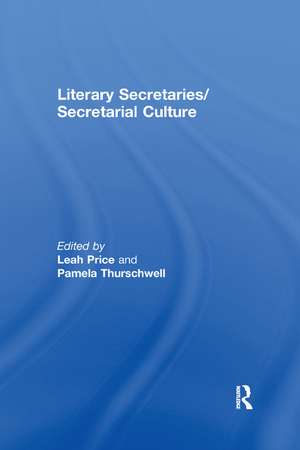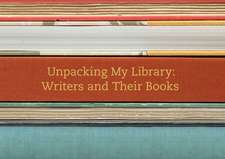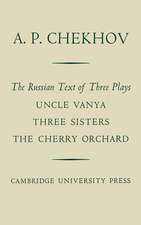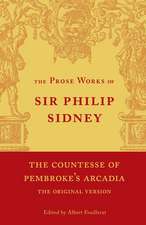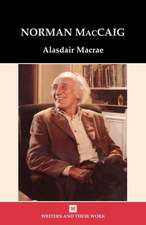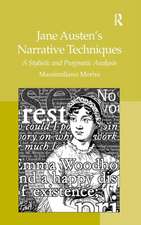Literary Secretaries/Secretarial Culture
Autor Leah Price Editat de Pamela Thurschwellen Limba Engleză Paperback – 10 iun 2019
| Toate formatele și edițiile | Preț | Express |
|---|---|---|
| Paperback (1) | 449.41 lei 43-57 zile | |
| Taylor & Francis – 10 iun 2019 | 449.41 lei 43-57 zile | |
| Hardback (1) | 1106.02 lei 43-57 zile | |
| Taylor & Francis – 28 dec 2004 | 1106.02 lei 43-57 zile |
Preț: 449.41 lei
Nou
Puncte Express: 674
Preț estimativ în valută:
86.00€ • 89.24$ • 71.88£
86.00€ • 89.24$ • 71.88£
Carte tipărită la comandă
Livrare economică 17-31 martie
Preluare comenzi: 021 569.72.76
Specificații
ISBN-13: 9781138378827
ISBN-10: 1138378828
Pagini: 176
Dimensiuni: 156 x 234 x 13 mm
Greutate: 0.45 kg
Ediția:1
Editura: Taylor & Francis
Colecția Routledge
Locul publicării:Oxford, United Kingdom
ISBN-10: 1138378828
Pagini: 176
Dimensiuni: 156 x 234 x 13 mm
Greutate: 0.45 kg
Ediția:1
Editura: Taylor & Francis
Colecția Routledge
Locul publicării:Oxford, United Kingdom
Cuprins
Contents: Introduction: invisible hands, Leah Price and Pamela Thurschwell; Speech on paper: Charles Dickens, Victorian phonography, and the reform of writing, Ivan Kreilkamp; Stenographic masculinity, Leah Price; The body types: corporeal documents and body politics circa 1900, Victoria Olwell; Dictation anxiety: the stenographer's stake in Dracula, Jennifer L. Fleissner; Secretary to the stars: mediums and the agency of authorship, Bette London; The case of the capable fingers: a Della Street mystery, Daniel Karlin; Bodies that mattered: technology, embodiment, and secretarial mediation, Douglas A. Brooks; Bibliography; Index.
Recenzii
'... the articles provide a much needed corrective to the critical tendency to represent the new systems for the sending, storing, and retrieving of data as the driving force in the transition from an industrial to knowledge economy... The results will be of interest not only to those concerned with the representation of laboring bodies in popular literature and culture, but with what it means to live at a time in which information is not so much a means of understanding the world as it is a kind of universal currency, the value of which demands the effacement of the manual labor of which it is a product... valuable collection of essays.' Victorian Studies
Notă biografică
Leah Price is Professor of English at Harvard University. She is the author of The Anthology and the Rise of the Novel and contributes regularly to The London Review of Books; she is working on two books, Novel Media and The Stenographic Imagination. Pamela Thurschwell is Lecturer in English at University College London. She is the author of Literature, Technology and Magical Thinking, 1880-1920 and Sigmund Freud, and co-editor of The Victorian Supernatural.
Descriere
Secretaries are the hidden technicians of much literary (and non-literary) writing; they also figure startlingly often as characters in modern literature, film, and even literary criticism. Literary Secretaries/Secretarial Culture brings together secretaries' role in the production (and, more surprisingly, consumption) of modern culture with interpretations of their function in literature and film from Chaucer to Heidegger, by way of Defoe, Dickens, and Erle Stanley Gardner. These essays probe the relation of office practice to literary theory, asking what changes when literary texts represent, address, or acknowledge the human copyist or the mechanical writing machine. Topics range from copyright law to voice recognition software, from screwball comedies to secretarial spies, from the history of technology to the future of information management. Together, the essays will provide literary critics with a new angle on current debates about gender, labour, and the material text, as well as a window into the prehistory of our information age.
